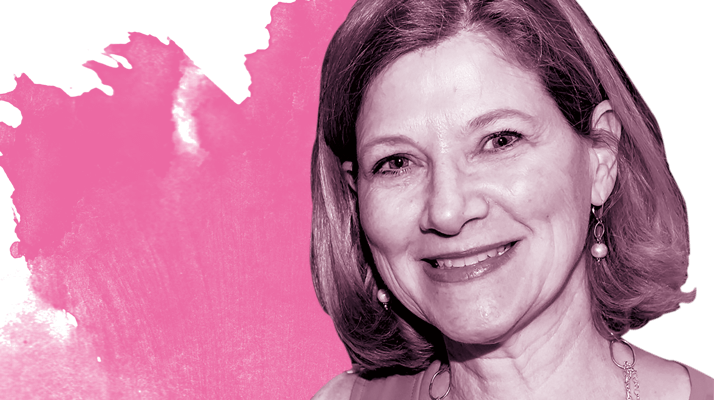
How did you get into angiogenesis? In the 1970s I was a student at a liberal arts college that was so small there was no research being conducted there. I was lucky and got a small summer fellowship studying hematology, looking at patients who had platelet defects. My supervisor pointed out to me that these people had vascular defects that were not obviously explained by the absence of platelets so I became interested in how the platelets might be “nourishing” or supporting the endothelial cells. When I went to graduate school, I chose to study blood vessels, and then I did a post-doc at Johns Hopkins working on tumor angiogenesis. There, I was introduced to ophthalmology, and I realized how important angiogenesis was in the eye. So my path, although long and winding, was a fortuitous one.
You’ve been involved in the field for over 30 years – how has it changed? The biggest changes that have moved the field forward are the technical ones. When I started, there was really no molecular biology, no restriction enzymes, no gene cloning. If you wanted to find a growth factor, you had to purify it from the tissue, and that was challenging! The introduction of restriction enzymes, gene cloning, and the ability to create gene knockout animals let us not only identify specific molecules, but to figure out their role in angiogenesis – these were huge steps. Before that, the field was very descriptive – we didn’t have any molecules to blame, or even study! The single biggest breakthrough is probably the identification of VEGF. People in the field spent a long time looking for an angiogenic factor that might be involved in pathology, so when VEGF was first identified in the late 1980s, and people began studying it, it became obvious that it was going to be important.
What’s your current research focus? We’re looking at a few things beyond VEGF – the most relevant for ophthalmology is our work on dry AMD. There’s a lot of evidence that inflammation is involved, and reasonable evidence that lipids are involved. One major focus of my lab is understanding if lipids are involved in the pathogenesis of dry AMD, and if so, how?
How do you find a work-life balance? Now that I am the director of research at Schepens and director of the Howe Lab at Mass. Eye and Ear, my lab is smaller than it was – in the old days my average lab size might have been eight or more, now it’s closer to four or five. That’s saved a lot of time, in terms of managing people, and writing grants to support them. Some people I’ve mentored previously have labs of their own, we share lab space, and our people collaborate. It’s great to have that internal support, and it means I can afford take on these other roles. As for managing my time, I just do the best I can, and I try not to spend my time at work doing things that could be done elsewhere. I’m a very good multi-tasker – when you’re a mother and scientist you have to learn that quickly. Finally, I prioritize; I try to say no. I turn tasks over to people in my lab – they get good experience, and I don’t take on something I have no time for.
What is your management style? I like the people in my lab to be independent. We’ll meet every few weeks and I’ll support them, but I’m not controlling. As director of research, I like consensus and compromise. I like solutions. I’m learning to go into meetings without a definite opinion on how I want things to go – I want to hear all the sides of the story and find a solution that suits everyone. Describe a typical day I probably have more of an average week. I’ll usually have a few meetings with other senior people – such as Joan Miller, who is chief of ophthalmology – as well as others in leadership during a week. I’ll attend some seminars. I’m involved in the medical school, so I’m probably over there once or twice a week to meet students and attend committee meetings. There’s some troubleshooting, dealing personnel issues, providing career advice, talking to faculty on strategy and finding funding. A lot of meetings, seminars, and talking. What advice would you give Patricia D’Amore 20 years ago? In terms of my career, I’m pretty happy with my progress. I don’t think there’s a lot I would change – I would definitely take a few more courses, especially on organization and management. I don’t think I’m bad at it, but as scientists, we are poorly prepared for management through education and training. I would probably spend some more time on myself, too, and set myself a personal policy to take more time off, as I don’t usually take a lot of vacations.
